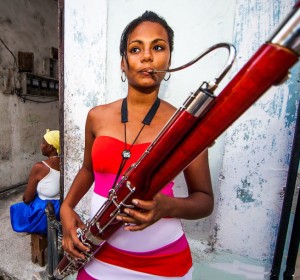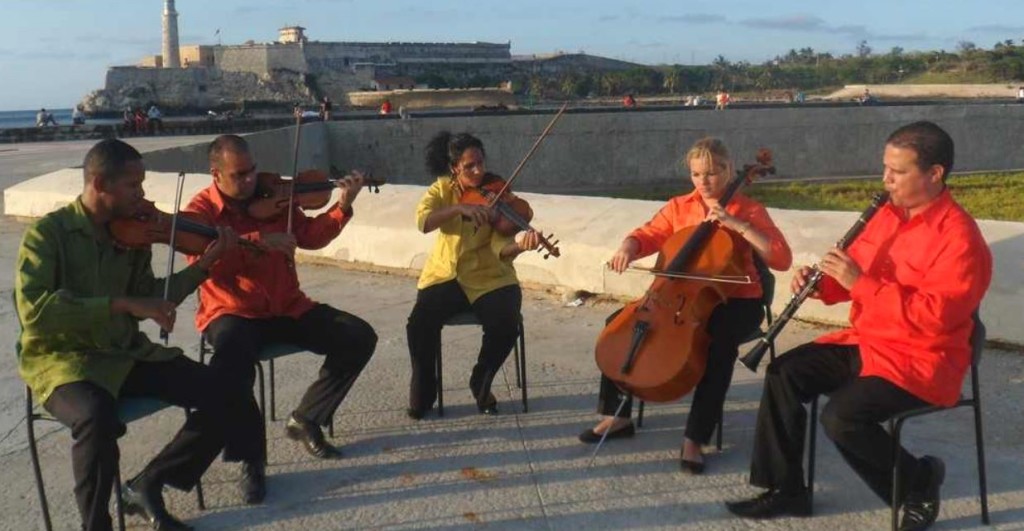
Culture Ministry tallies cost of U.S. blockade on arts and culture
Cuba’s Ministry of Culture has quantified the amount of money Cuban artists have spent unnecessarily because of the U.S. trade blockade. It comes to 24 million dollars a year, the daily Granma reported Wednesday (Sept. 30.)
A report from the Ministry, headed by Julián González Toledo, says that the blockade has adversely affected the teaching of the arts and the presentation of music.

In the first instance, the quality of teaching and the training of students have suffered for lack of materials. In the second, the so-called embargo has impaired the live appearances of Cuban artists, the commercialization of their CDs and videos and the royalties to which they are entitled.
“The blockade imposed by Washington limits the purchase of basic materials for teaching, such as musical instruments, oil paint, acrylics and brushes, dancing shoes and costumes for students of ballet and dance,” Granma says, citing the Culture Ministry.
“The economic war in this area also affects the purchase of books on music, music manuscript paper, strings for guitar, violin, cello and double bass, materials that must be purchased at high cost in the international market,” the newspaper says.
In the case of ballet, “large sums of money are invested in costumes, footwear and other equipment. […] If these accessories could be bought in the U.S. market, the savings would be significant.”
Because of the existing regulations, the appearance of Cuban musicians in the U.S. must be kept at the level of “cultural exchanges” without formal commercial contracts, “so the Cuban music enterprises obtain no economic benefit and are unable to profit from other markets during the period of the exchanges” with the U.S.
The extraterritorial blockade “impedes the promotion, dissemination and commercialization of Cuban artists and depresses the price” of their performances. If the restrictions did not exist, “the export potential of the musical groups in the ICM [Cuban Institute of Music] in the United States could reach 5 million dollars a year.”

The exiting barriers prohibit the direct sale of Cuban CDs and DVDs, as well as digital broadcasts, to the U.S. market, Granma adds.
As an example, the newspaper cites the Bis Music record company, some of whose musicians have performed in the U.S. If the company had been permitted to sell their CDs in this country to promote the tours, it might have earned 100,000 dollars, Granma points out.
In terms of royalties, “it is impossible to sign reciprocal representation contracts to protect the repertoires exploited in both territories.”

The principles of copyrights and royalties are observed worldwide but not in the case of Cuba and the United States, whose artists are denied those rights by the blockade, Granma says.
Cuba’s participation in the Grammy Awards is another example of the limitations imposed by the blockade. Cuban artists cannot reserve and pay for their transportation and lodging in the U.S. through bank transfers, so in effect they are barred from attending, the Culture Ministry document alleges.
In his speech at the United Nations on Monday, President Raúl Castro said that the normalization of relations between the U.S. and Cuba “can only be achieved [among other factors] when our people are compensated for the human and economic damages they still endure.”
In mid-August, President Castro’s brother Fidel wrote in an article that “Cuba is owed compensation equivalent to damages that total many millions of dollars, as our country has stated with irrefutable arguments and data.” He did not cite a specific amount.
[Photo of artists at top from Granma.]

